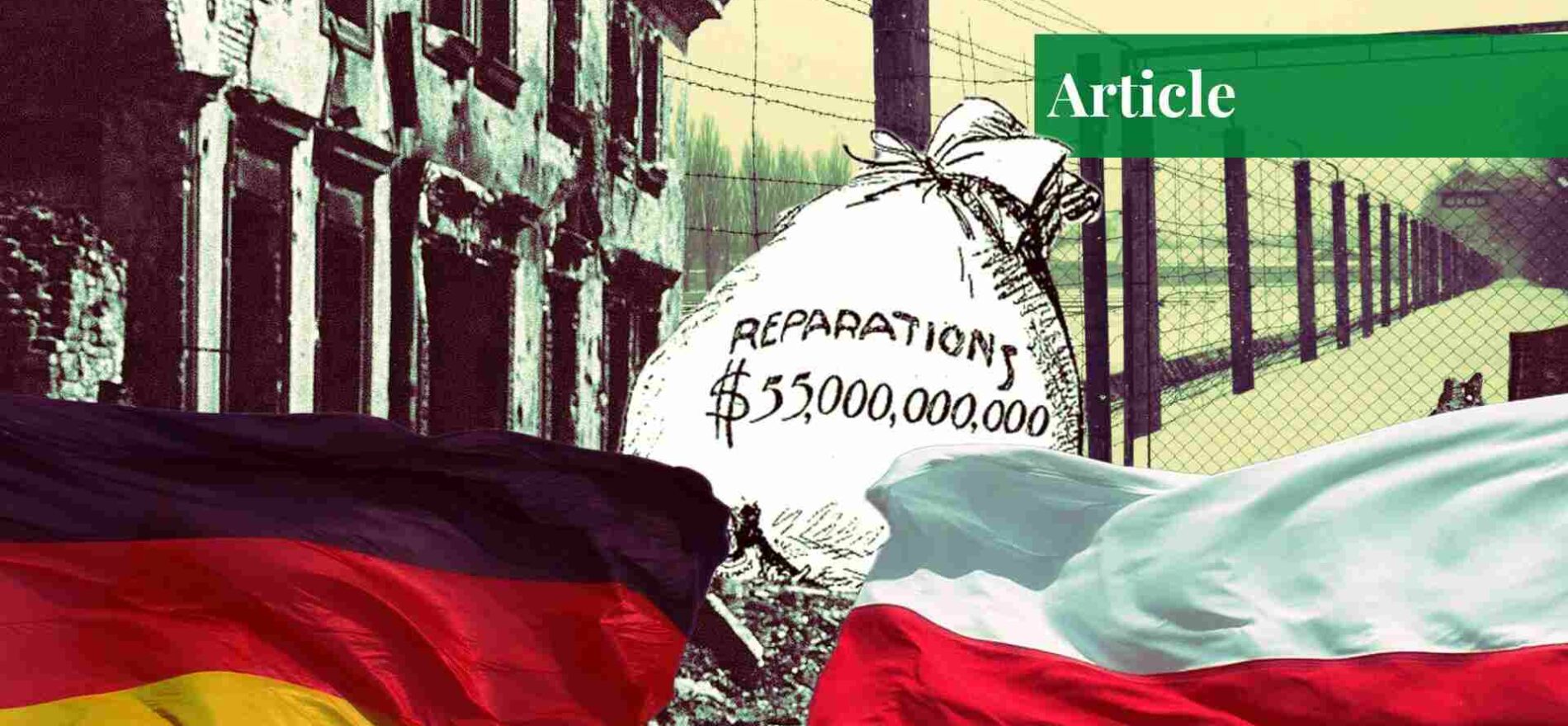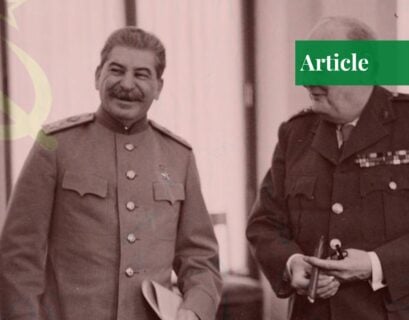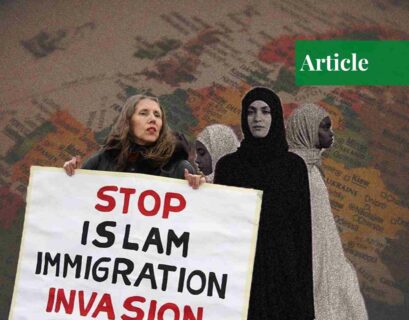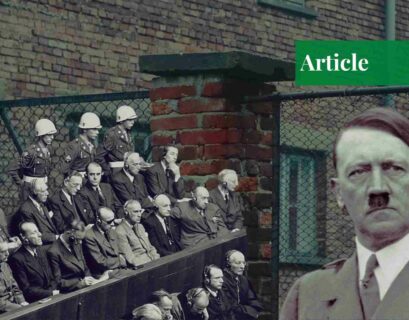Hamra Tariq is an undergraduate student currently pursuing her international relations degree at Kinnaird College for Women, Lahore. She has a keen interest in South Asian politics, the Indo-Pacific, and the shift in the global order.
PiS Moves a Motion
September 1st marked the anniversary of the six years of brutal occupation in 1939 by Nazi Germany of Poland during WW2 (the Second World War). Poland has announced that the government will ‘ask Germany to negotiate war reparations’ worth 1.3 trillion dollars. Addressing a conference, the leader of Poland’s governing party (PiS), Jaroslaw Kaczynski said, “it is a significant sum of 6.2 trillion zloty” while stressing that this sum is a “compensation for the deaths of more than 5.2 million Polish citizens” who lost their lives to occupation.
He admitted that receiving the reparations would be a “long and difficult process.” The sum totals up to the annual budget of Germany for two to three years. An overwhelming majority in the lower house of Poland voted in favor of the PiS project to claim reparations for WW2. 418 of the 460 MPs in the lower house of parliament supported the PiS proposed motion, with only four voting against it.
However, passing the resolution faced resistance from opposition parties which declared that demanding compensation would only strain relations with Germany. Poland’s leading economists, historians and experts were working on a long-awaited report on the cost of Germany’s occupation since 2017. The document was finally made public this year in a ceremonial release event held at the Royal Castle in Warsaw on the occasion of the 83rd anniversary of the start of WW2.
The Report on the Losses
During his news conference, Kaczynski clarified that the calculations for war reparations were done using the most conservative method and that the sum could increase. Polish Prime Minister Mateusz Morawiecki in his tweet mentioned that the report on war losses was not only a settlement for the past events but compensation for Poland’s ‘crippling’ future.
The government officials have repeatedly reinstated that the dark history remains a hindrance to bilateral relations. Poland’s present right-wing government rejects the war settlements made in 1953 by the then communist leaders under pressure from the Soviet Union to not claim any further reparations from Germany.
The report reveals shocking statistics categorizing the war losses. For example, 2.1 million Poles were sent to work as slaves in Nazi Germany, and Poland lost 50 percent of its lawyers as well as a significant percentage of its doctors and university professors. Human losses are calculated as loss of wages and a subsequent loss to GDP. Additionally, there were predicted material losses of 800 billion zlotys (170 billion euros).
The sum also includes multi-billion dollar losses in the banking industry and related to cultural and creative assets. The Russian invasion of Ukraine and Berlin’s dependency on Russia’s gas have given an added advantage to PiS in Poland to demand war compensations more assertively.
The largest opposition party in Poland, Civic Platform, is led by Donald Tusk who stated that Kaczynski’s announcement had nothing to do with reparations, rather it is concerned with a political campaign being run internally to regain support for the ruling party. During his address, Kaczynski made a sharp-witted offer to Israel to ‘join the action,’ considering that most of the Poles killed by Nazis were of Jewish origin.
A Look Back at WW2
Poland, a neighboring state of Germany, was occupied by Nazi forces on September 1, 1939. The occupation of Poland lasted until the end of WW2 in 1945 when Germany surrendered. Around six million Polish citizens including three million Polish Jews were killed during the invasion. Warsaw was destroyed completely; infrastructure, culture and industry suffered immense losses.
During the 1950s, West Germany paid nominal indemnities to Yugoslavia, Israel and other states. On the other hand, East Germany reimbursed the Soviet Union which, in turn, was supposed to pay a part of the paid indemnities to Poland. During the end of the Cold War, the Two Plus Four Treaty between East and West Germany, the UK, the US, France and the Soviet Union was signed which formally provided closure to war claims.
The complexity of the issue stems from a time when international law was being formulated. The West and East split of Germany turned the situation more complicated. Poland contests that it did not exist as a sovereign state in 1953 due to the shared aggression between USSR and Germany against Poland. The communist government of the Soviet Union decided the fate of Poland.
Germany’s Unchanged Stance
Germany is Poland’s largest trading partner and a fellow member of both the European Union and NATO. Germany has time and again claimed that the dispute was settled legally and that the financial claims were all sorted between both nations.
Berlin long considers the matter closed as Poland’s territories lost during the invasion were later reallocated with some of Germany’s pre-war land. Germany has been keen to disassociate itself from the Nazi past, and so it doesn’t intend to pay any of the sums.
Fractions in the EU
The PiS’s attempts to reopen the war history and ask for reparations signifies the rise of nationalism in several member states of the European Union. EU is threatened by the ambiguous role of Germany, which possesses the potential to lead the bloc. Such internal reconciliation can help Europe overcome external threats, especially from Russia and the ongoing tensions in Ukraine.
The spirit of European integration remains neglected amidst the years-old claims being revisited. The consistent and legal yet repetitive approach taken by the PiS harms the country’s future in its ambition to seek its right from the past. The war reparations have been the most significant bone of contention between Germany and Poland for the last couple of years.
It seems difficult for both Poland and Germany to close the chapter and look for a common denominator and work for an integrated Europe. The successful reconciliation between Germany and France can be considered a reference point for both states to reframe relations for mutual, shared interests. Europe has a bigger challenge to face at the moment: Putin.
If you want to submit your articles/research papers/book reviews, please check the Submissions page.
The views and opinions expressed in this article/paper are the author’s own and do not necessarily reflect the editorial position of Paradigm Shift.



















